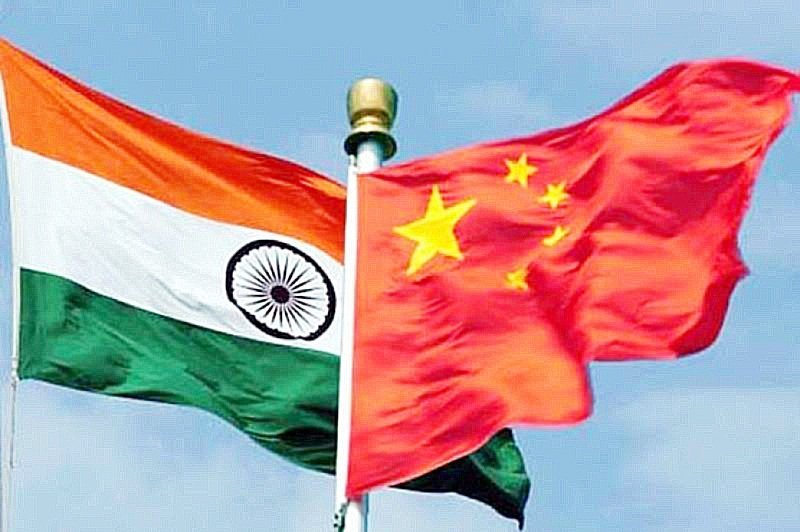China-India vie for Nepal
February 26, 2018 | Expert Insights

In February 2018, Khadga Prasad Oli, was elected as the Prime Minister. He is the Chairman of the Communist Party of Nepal (Unified Marxist Leninist). In recent years, Nepal’s ties with India has considerably weakened and its relationship with China has grown in contrast. Will this result in India and China battling for influence in the region?
Background
Nepal, a landlocked country in the Himalayas, shares a border with both India and China. An ancient culture, the nation was closed off from the rest of the world till 1950. Before that the Shah Dynasty had established the Kingdom of Nepal. After it ended its isolation with the outside world, Nepal instituted Parliamentary democracy in 1951. In 2008, the Hindu monarchy came to an end after the Nepalese Civil War. Thus, it became a Republic.
Ties between India and Nepal have traditionally been good. Diplomatic ties ensued after the two nations signed the 1950 Indo-Nepal Treaty of Peace and Friendship. The two countries share close linguistic, marital, religious, and, cultural ties. The border between India and Nepal is an open boundary, people of the two nations come and go freely. Nepal is a land locked country with India on three sides and China on the northern border.
However, ties between the two nations have been strained since 2015. There have been reports of anti-Indian sentiment growing among the citizens as well as the government. Additionally, in September 2015, the Nepali government accused India of imposing an undeclared blockade. This prevented trucks carrying perishables like fruits and vegetables from crossing the border into Nepal. This caused an economic and a humanitarian crisis in Nepal. India denied that it had intentionally initiated the blockade.
The ties between Nepal and China were initially unenthusiastic. The trade ties have grown significantly since 1975. Since 2016, China has opened 32 border crossing points into Nepal. However, India continues to be Nepal’s key economic as well as security partner.

China and Sri Lanka
Bilateral relations between Sri Lanka and China are friendly. Historic and cultural ties between the nations date back to centuries. Recent years have found the governments of both countries working to strengthen their ties. Over the years, China has provided economic, military and technical assistance to Sri Lanka. This is largely due of Sri Lanka’s geographical location.
Sri Lanka also shares close ties with India even though the relationship has been tense in the past. It has since become a region that China and India have battled diplomatically to gain influence. Ever since then, India and China have strategically fought for influence in Sri Lanka. For its part, Sri Lanka has become closer to China and has become an enthusiastic support of the One Road One Belt project. In 2017, it inked a $1.12 billion trade agreement with a state-run Chinese firm. As a result, the Sri Lanka Ports Authority sold a 70% stake in the Hambantota port to China Merchants Ports Holdings.
Analysis
In recent years, Nepal’s political landscape has shifted and changed considerably. In February 2018, Khadga Prasad Oli, was elected as the Prime Minister. He is the Chairman of the Communist Party of Nepal (Unified Marxist–Leninist).
China has begun playing an active role in Nepal’s culture and its functioning. Since 2016, China has opened 32 border crossing points into Nepal. China has also made significant investments in improving infrastructure in Nepal. It was announced on January 12th, 2018, that China will become Nepal’s second internet service provider. Up until now Nepal depended on India for internet access.
Meanwhile, Prime Minister Khadga Prasad Sharma Oli has promised to revive the Chinese-led Budhi Gandaki dam project cancelled by the previous government. He also made a pointed comment directed at Nepal’s previous dependence on India stating, “We can’t forget that we have two neighbours. We don’t want to depend on one country or have one option. With a new constitution and completion of elections to the three tiers of government, we have completed our political transformation. As we begin our journey as a federal republic, it’s now time to refocus our attention to Nepal’s economic transformation.”
“India wants to micromanage Nepal. They have to control all government appointments, they have to know everything. Their ambassadors behave like viceroys. Aren’t we a sovereign nation?” echoes Kishor Shrestha, editor of Jana Astha National Weekly and a board member of Nepal’s press council.
Kanak Mani Dixit, Nepali publisher and writer stated that India’s “unofficial” blockade essentially changed public opinion and resulted in Oli coming into power. Dixit said, “India virtually delivered the election to Oli, he didn’t need a lot of strategising. Nor did Oli show exemplary independence in knocking on China’s doors. The visceral ultra nationalism in Nepal as a backlash to India’s blockade made these choices pretty obvious for him.”
Assessment
Our assessment is that even though India remains the main economic and security partner for Nepal, its stock among Nepali citizens has been hit due to the blockade. The Indian government should be mindful that if China succeeds in replacing India as the key partner with regards to economy and security, then it would have well created a fissure at the Himalayan border that separates the Indian mainland from China. We have spoken about the India and China’s ties to Nepal in an earlier article.








Comments